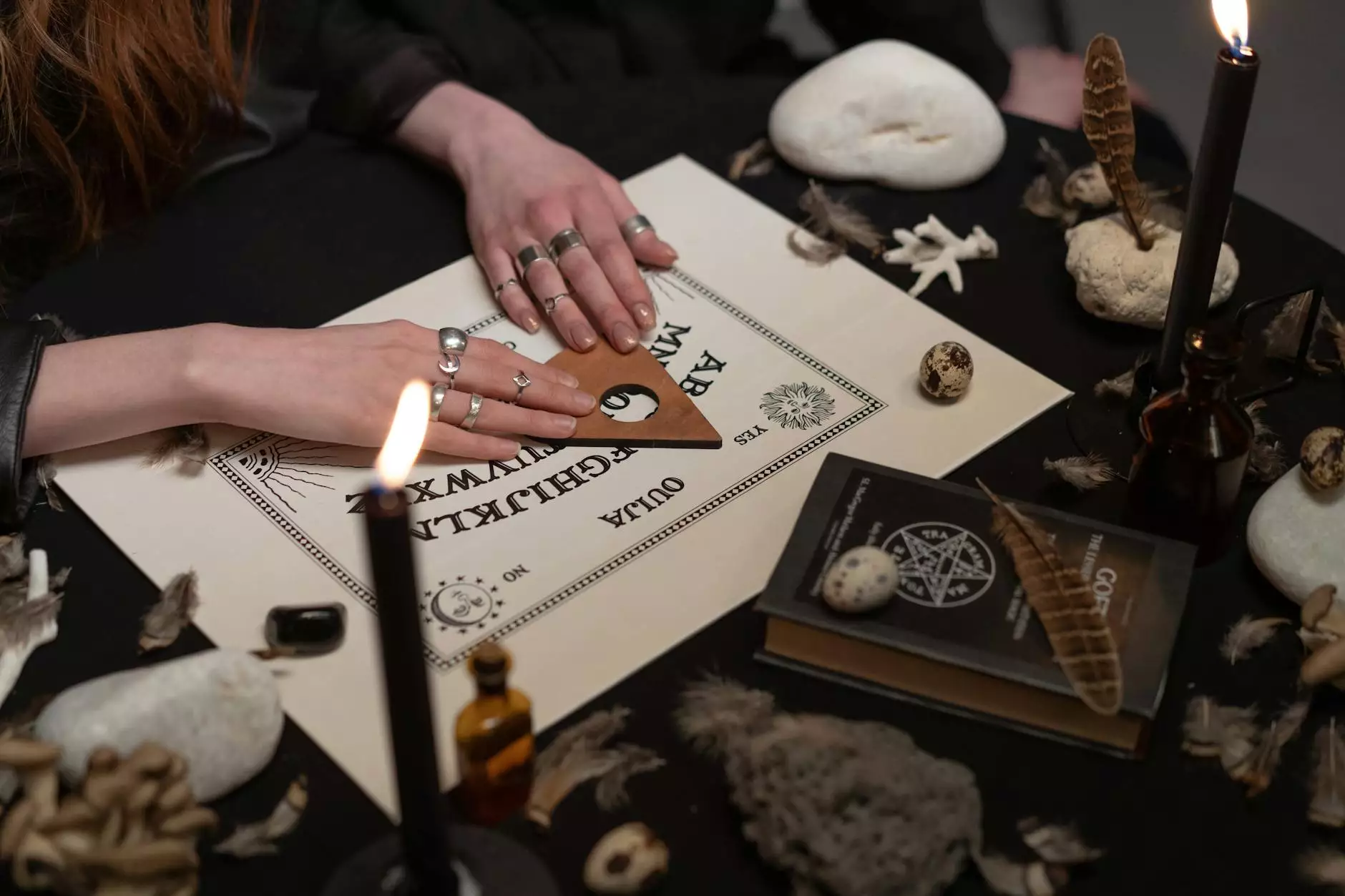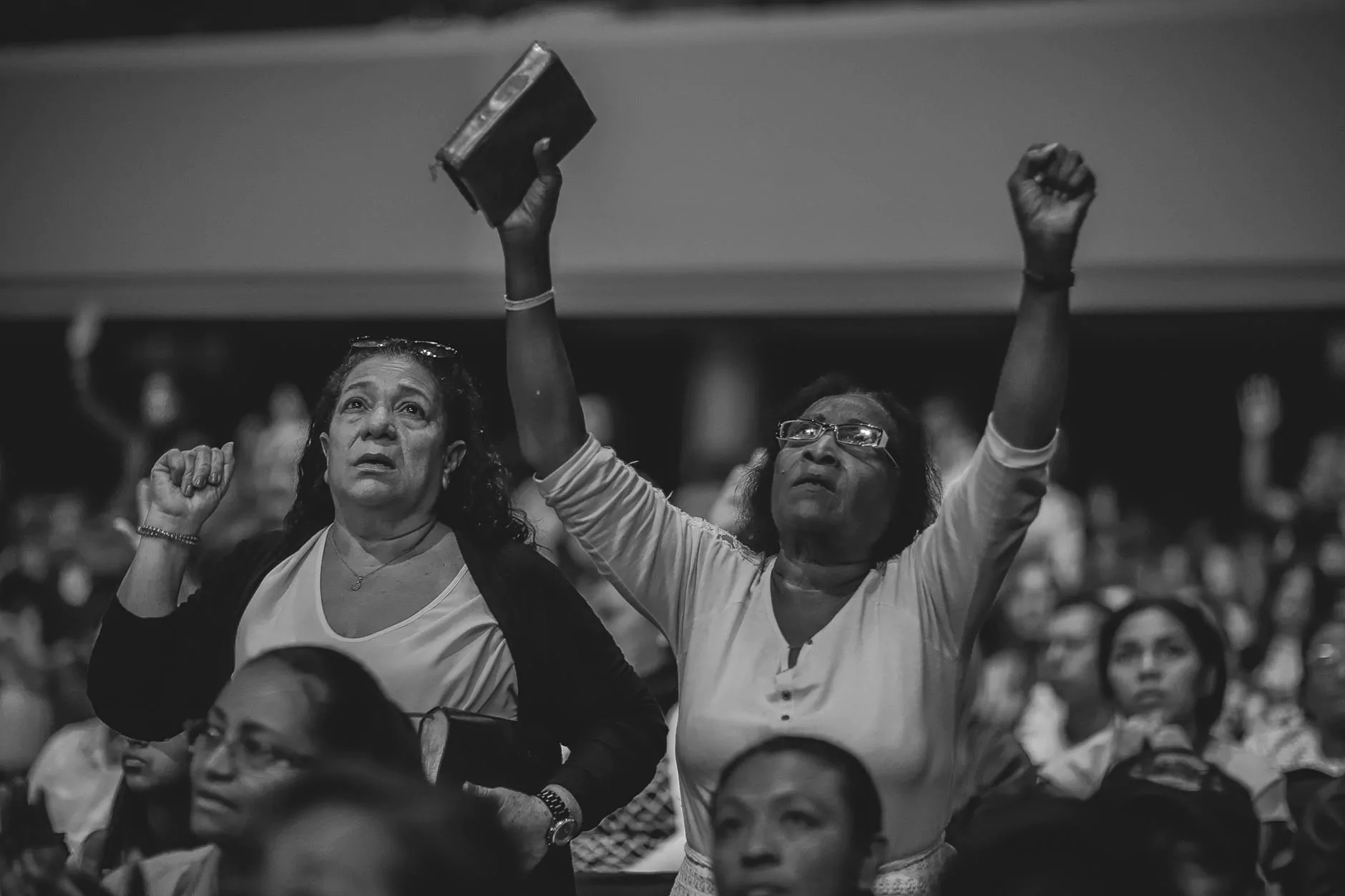Understanding the Greek Word for Witchcraft: A Comprehensive Analysis

The journey to understand the Greek word for witchcraft is not merely an exploration of language, but rather an enlightening foray into culture, history, and community. In this detailed article, we will investigate the etymological roots, cultural significance, and modern implications of witchcraft within the framework of Morning-Star and its commitment to community service and religious organizations.
The Etymology of the Greek Word for Witchcraft
The Greek word that translates to witchcraft is φαρμακεία (pharmakeia), which primarily refers to the use of potions, charms, and drugs. This term carries connotations of both healing and harm, underscoring the dual nature of such practices in ancient societies.
- Historical Usage: The term was often associated with both beneficial remedies and malicious intents, showcasing the fine line between healer and witch.
- Cultural Perspectives: In ancient Greece, individuals who practiced pharmakeia could be revered as wise or feared as malevolent, depending on their actions.
- Mythology and Literature: Greek mythology abounds with figures such as Circe and Medea, who exemplify the complexities of witchcraft in mythology, often blurring lines between humanity and divinity.
Witchcraft in Greek Society: Historical Context
In ancient Greek society, witchcraft was a significant aspect of both personal and community life. The perception of witches varied widely, influenced by cultural, social, and religious factors.
Religious Connotations
Witchcraft in ancient Greece was not simply an act of sorcery but was intimately tied to the religious fabric of the time.
- Invocation of Deities: Witches often called upon gods and spirits, blurring the lines between the sacred and the profane.
- Rituals and Ceremonies: Various rituals incorporated aspects of witchcraft, influencing agricultural cycles, health, and community well-being.
- Social Commentary: The fear of witchcraft often reflected societal anxieties, especially concerning power dynamics and gender roles.
Witchcraft and Gender
The practice of witchcraft was often gendered, with women being the primary practitioners. The societal implications of this are profound:
- Empowerment vs. Oppression: While some women found empowerment in their roles as healers and charmers, others faced persecution.
- Misogyny in the Accusations: Many accusations of witchcraft have deep-rooted misogynistic elements, reflecting broader societal fears of women's autonomy.
- Legacy of Witch Hunts: The history of witchcraft is also a cautionary tale about the consequences of societal fear and misunderstanding.
The Evolution of Witchcraft in Contemporary Greek Culture
Today, the concept of witchcraft has evolved, intertwining with modern spirituality and alternative practices.
Modern Spirituality
Many contemporary practitioners view witchcraft as a form of spiritual expression rather than malevolence.
- Eclectic Practices: Modern witchcraft is often an amalgamation of different beliefs, practices, and rituals that celebrate nature, femininity, and healing.
- Rituals and Community: Many individuals engage in rituals that focus on personal empowerment and community development, linking back to historical practices.
- Connection to Ancient Traditions: There’s a resurgence of interest in ancient Greek practices, with some seeking to reconnect with the roots of pharmakeia.
Community and Non-Profit Organizations
Organizations like Morning-Star work to foster understanding and community service through various initiatives.
- Education and Workshops: Offering courses on the historical and cultural significance of witchcraft can demystify the practice and foster a sense of community.
- Support Groups: Creating spaces for individuals interested in spirituality enables personal growth and collective understanding.
- Interfaith Dialogues: Encouraging conversations between different religious organizations enhances mutual respect and understanding, bridging gaps between varying beliefs.
Challenges and Misconceptions Surrounding Witchcraft
Despite its evolving perception, witchcraft still faces numerous challenges and misconceptions in modern society.
Stigmatization and Stereotyping
Many still associate witchcraft with negative stereotypes, which can lead to social stigmatization.
- Media Representation: Popular media often reinforces outdated notions of witches, portraying them as malicious or dangerous.
- Fear of the Unknown: A lack of understanding can lead to negative attitudes towards individuals who identify with witchcraft.
- Legal and Social Challenges: In some regions, those who practice witchcraft may face legal challenges or discrimination.
Addressing Misconceptions
Education and advocacy are crucial in dismantling these stereotypes.
- Community Outreach: Organizations can host events that educate the public about the true nature of witchcraft as a spiritual practice.
- Promoting Positive Narratives: Sharing stories of individuals who practice witchcraft positively can help shift perceptions.
- Cultural Competence Training: Providing training for individuals in religious organizations about diverse beliefs can enhance understanding.
The Importance of Recognition and Respect
Respecting various beliefs, including practices like witchcraft, is fundamental to fostering a harmonious society.
- Interfaith Understanding: Building bridges between different communities can encourage mutual respect and a deeper understanding of various spiritual practices.
- Support for Practitioners: Offering support for those practicing witchcraft can aid in their search for community and belonging.
- Cultural Appreciation vs. Appropriation: It is important to appreciate the cultural roots of these practices without appropriating them in a way that disrespects their significance.
Conclusion: Embracing Diversity in Belief Systems
The significance of the Greek word for witchcraft extends far beyond mere definitions or linguistic exploration. It uncovers layers of history, culture, and contemporary practice that deserve recognition and respect. Organizations such as Morning-Star play a vital role in not only educating society about these topics but also fostering a community that values diversity in belief systems. By embracing these differences, we can work towards a more inclusive and understanding society.
Ultimately, the evolution of witchcraft from ancient times to the present day reflects a broader narrative of social change, cultural identity, and the continuous quest for understanding in a multifaceted world.









